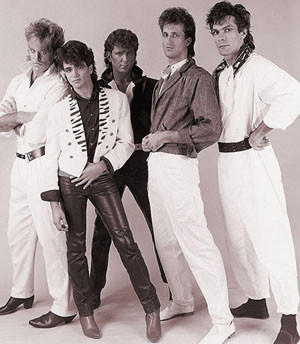The Modes
Настоящее имя: The Modes
Об исполнителе:
In Boston, MA back in the 1980's lived a power pop band called The Modes. Their sound combined hard rock with melodic pop sensibilities. The band was formed by guitarist / singer / songwriter, Steve Davidson after stints in the (Real) Kids and then the punk metal outfit Slash. Both bands were popular attractions, particularly at the notorious Boston nightclub called The Rat. The Modes enjoyed a remarkable climb only to implode in a tangle of music business complications. Their first recordings; How'd We Ever Get So Girl Crazy and Live Like You're Gonna Die Tomorrow were originally released as a 45 RPM. It featured mainly Steve and original drummer, Charlie Molinari. The single received regional airplay and sold well. Soon after its release the affable bass player known as Bunky Mulkern joined and the Power Pop trio was off and playing gigs. Not long after that, singer / guitarist Ken Kozdra (later of New City Rockers) joined and aligned himself to The Modes vision. His songs became integral to the band's sound. When Charlie left, the band found a quick substitute with Phil 'Dueg' Provost, brother of Thundertrain's bassist and guitarist. Provost helped them to continue on, but a re-inventing was eminent. Steve and Ken forged ahead mainly as a recording duo. Their song writing quality and a self-produced video led them to be discovered at a music industry convention. They were invited to Muscle Shoals, AL to record with hit producer, Terry Woodford. Their newly acquired credibility gave Ken and Steve the status to recruit a top quality rhythm section and thus the final incarnation of The Modes included; bassist, Andrew Mazzone; drummer, Tom Major; and keyboardist, Wes Nagy. The band was signed to a major record label and to the prestigious ICM Agency. The Modes went over great when booked as openers for hit national acts. The Modes were assured that with the release of their forthcoming record, pop stardom would follow. Ultimately a few business missteps and the dreaded, creative differences caused the band to self-destruct just on the brink of their national debut.

